- Home
- Kathy Reichs
Bones of the Lost Page 19
Bones of the Lost Read online
Page 19
Katy was examining a scarf on another rack. I waved her over.
“Can you understand what she’s saying?”
“Don’t worry about it.” Katy lowered her voice. “She’s a little off.”
“What do you mean?”
“I’ve seen her do this before.”
“Do what?”
“Rag on women in civvies.” Katy nudged me around the girl and up the street. “One of my bunkmates says the kid’s nuts.”
I allowed myself to be led. But when we stopped, I glanced over my shoulder.
The girl was still staring at me. As I watched, a man emerged from the shop and drew her inside.
“Mom.”
I turned back.
“Come look at this.”
Unsettled, I tried to focus on the rug that had drawn Katy’s eye. I was about to comment when the sound of wailing split the air.
“Incoming.” Katy dropped the rug. “Let’s go.”
We bolted across the road, took a hard right, and scrambled into a low concrete structure covered with sandbags. Others already occupied the benches. More followed us in.
In seconds the bunker was full. I sensed no panic, more the calm acceptance that comes with routine.
As we waited in the dark, sirens screaming, I again felt a light touch on my hand. I glanced left. Recognized the silhouette. The Allah girl was hunkered beside me. Beyond her was the man who’d taken her inside the shop.
Time passed.
The girl was so close I could feel her body trembling. At one point she whimpered. The man spoke to her sharply. I heard the word Khandan. Her name?
Finally, the all-clear sounded. We gathered our gear and scrambled out.
“You’re pretty cool about this,” I said, slinging my backpack over one shoulder.
Katy shrugged. “More a nuisance than anything. You get used to it. Life goes on.”
Usually. But many had died at U.S. bases as a result of missile and mortar attacks.
As we spoke, the man and girl passed. Though he paid us no attention, her eyes again locked onto mine. Sad? Bewildered? Pleading?
Yes. That’s what bothered me. The girl seemed so needy. But needy of what?
Then she was gone.
“What do you suppose that kid was trying to say?” I asked Katy.
“I told you. She’s a nutjob. Forget it.”
I tried.
But that night, alone in my bunk, the girl’s face floated before me.
Again and again I saw the dark, imploring eyes.
TWENTY-FOUR HOURS LATER I was still thinking about the girl.
Two girls, actually.
Khandan, at Bagram. Jane Doe, in Charlotte.
Welsted had organized my return flights. I’d risen with the sun to set out. The seven-thousand-mile trip, one to tax the resolve of even the most hardened traveler, started sadly, then quickly morphed into a nightmare.
First there was the tearful farewell with Katy. She met me at the flight line. We hugged tightly. She was so damn strong.
“You going to be okay?”
“I’m the one leaving. Promise you’ll be careful?”
“Relax, Mom. I’ll be fine.”
Her calm certainty filled me with an odd sort of dread.
We’d hugged again. Then I’d made my way toward the lockdown hangar.
That’s when the true misery began. Our C-130J had a blown rotor on one engine. Mechanics had been summoned. We all know what that means.
Already cleared for departure, I wasn’t allowed to return to base. I spent hours dozing, watching football, drinking coffee, going to the head, and eating plastic sandwiches and muffins with a hundred sweaty soldiers, airmen, and marines.
Finally, we boarded and harnessed ourselves in. The plane muscled up through the desert air, broke the clouds, and leveled off. I leaned back against the icy vibrating bulkhead and closed my eyes.
And there were the girls.
Khandan. Something about her intrigued me. Katy said she was mentally challenged, but I wondered. She’d had an intensity that didn’t square with that.
What had she been trying to say? I’d gotten one word. Allah. Was she seeking help? A handout? A sale? A convert? And why did the encounter bother me so?
Then there was Jane Doe in the MCME morgue cooler. Radio silence from Larabee. Dead ends, trails gone cold? Was Slidell still pushing? I needed to complete my testimony, get home, and rededicate myself to the case. To the promise I’d made her.
By the time we touched down at Manas International my head throbbed, a vein of fire ran my spine, and my ankle was causing me serious grief. This time I was met by a milk-faced soldier with a corn-silk mustache. His fatigues read ELKINS.
“Sergeant Mensforth is tied up.” Elkins’s voice was high and adenoidal. “I’ll help get you processed.”
I followed him through the labyrinth that was the transit center, weaving among U.S. service members and Kyrgyz guards with stone faces and very large guns.
Elkins pointed at a pile of luggage that looked identical to the one I’d rummaged on the way out.
I collected my bags and lugged them to customs. Where every item was removed and inspected as though my record showed multiple convictions for trafficking in heroin and guns.
We proceeded to passport control. Where I was refused clearance.
Not conversant in Kyrgyz, I failed to understand the problem. So did Elkins. A translator was summoned. Much discussion followed, during which my flight was called.
At long length, the interpreter explained that upon arrival I’d been issued a permit for one entry into Kyrgyzstan. Today’s transit constituted a second entry.
Sixty minutes and a zillion phone calls later, the issue was resolved. Or a bribe was paid. I’ve no idea. I bolted to the gate and boarded as the door was closing.
Five hours after taking off, I landed in Istanbul. I was checking e-mail in the Turkish Airlines lounge when an annoyingly calm and sugary voice announced several flight delays. Mine was among them. Since the lounge was the most comfortable place I’d been in a week, I was not devastated.
Dawn was lighting the horizon when I finally settled into my little pod in business class. I was reading the menu when the captain’s voice came over the intercom.
“Ladies and gentlemen, we’ve got a pesky little light flashing on the board up here. Probably nothing, but we’re being advised to remain at the gate.”
The cabin attendants immediately began dispensing alcohol to the business-class passengers. Little comfort to us nondrinkers.
It was late afternoon when we finally took off. Once airborne, I ate dinner, watched one movie, then lowered my seat and killed the light. Though fitfully, I did sleep.
Beyond knowing I’d gained seven hours, I was clueless about my exact ETA in DC. I collected my bags, dragged through customs and immigration, then on to my departure gate.
What are the odds? My flight was delayed.
There are times when all one can do is acknowledge the random futility of existing in this universe.
While waiting, I checked my phone messages. Ruff Noonan had called to say that Lejeune was aware of my situation, and that someone would meet me at wheels-down in Jacksonville, North Carolina.
Larabee wanted me to call as soon as I was back in Charlotte.
Pete asked that I phone when stateside.
Nothing from Ryan.
I emailed Katy to let her know I’d gotten back to the world.
It was just past midnight when I finally touched down at the Albert J. Ellis Airport in Jacksonville. A sergeant in fatigues approached as I was offloading my belongings from the carousel. Stout, middle-aged, but looking like he could lift a Toyota.
“Master Sergeant Earl Rigg, ma’am. I’m your ride to Lejeune.” Rigg heaved my duffel onto his shoulder. “Follow me.”
We drove north on Route 258, lights strobing the windshield. Rigg wasn’t a talker. Or maybe he sensed my exhaustion.
I star
ed out the window, barely taking in the passing tableau. A pawnshop awning saying WE BUY DRESS BLUES. Endless fast-food joints. Wilson Bay, the water an endless black mirror.
After some time, we pulled up to an imposing brick wall with signage stating CAMP LEJEUNE, HOME OF EXPEDITIONARY FORCES IN READINESS.
Rigg spoke when we’d cleared security.
“Looks like you could use some shut-eye.”
“It’s that obvious?” I smiled. I think.
“Yes, ma’am.”
As Rigg drove across the base, I cracked the window and inhaled the warm night air. The smell of fresh-cut grass, pine, and red cedar made me realize how glad I was to be back in North Carolina.
The Lejeune Inn, built to provide temporary housing, was brick and strictly utilitarian. The Boxy and Plain School of architecture.
“Get yourself sorted with the front desk,” said Rigg. “I’ll bring your gear.”
I drew a first-floor room. Rigg appeared as I was unlocking the door.
“Have a good night, ma’am.” A curt nod, and he was gone.
I looked around.
A kitchenette. A table and two chairs. Built-in drawers and shelves, one holding a TV. Two double beds.
An electric alarm on a stand between the beds said 12:47. In the quiet, I could hear it humming softly.
After minimal toilette, I stripped down and crawled under the sheets. Sleep claimed me as soon as my head touched the pillow.
I awoke to the shrill of a phone.
“Mm.”
“Sergeant Rigg, ma’am. Major Hawthorn would like to meet with you at ten hundred hours.”
I glanced at the clock. 9:24.
“I’ll be in the lobby in twenty minutes.”
Quick shower, shampoo, teeth. A dab of blusher, one ghastly instant coffee, and I was out the door.
Rigg was waiting. He nodded, then turned quickly. I think he felt awkward, not being able to salute.
The morning was warm but overcast. Dozens of birds stood sentry on power lines and in overhead branches.
As we drove along the beach, I noticed a Marine unit doing nautical maneuvers, six-person crews humping Zodiacs into the surf. I could hear the drill sergeant barking orders over the sound of the waves.
The Legal Services and JAG office was located a short distance up Holcomb Boulevard. Rigg dropped me at the front door.
“Ask for Major Joe Hawthorn.”
The receptionist had long legs, smooth skin, and amber hair piled high. Her drawl was thicker than Gran’s cheese grits.
“Temperance Brennan for Joe Hawthorn,” I said.
“I am so sorry.” As though personally aggrieved. “Major Hawthorn’s running a smidge late. Would you care to wait in his office?”
Smidge?
“That would be fine.”
“Please come with me.”
Smiling, she rose and turned right down a narrow hall, stilettos clicking on the shiny gray tile. We entered a door with a plaque bearing Hawthorn’s name and rank.
“Can I get you anything? Coffee or tea? Perhaps a soda?”
“Coffee, please.”
The office triggered a flash image of Mrs. Flowers. The blotter was positioned perfectly parallel to the edge of the desk. Everything on it was arranged with exactitude. A yellow tablet. A letter opener. Three pens equidistant from each other, nibs perfectly aligned.
A framed photo showcased a blandly handsome man, his blandly pretty wife, and two well-groomed boys. I was imagining names when Ms. Southern Apple Pie returned and handed me a napkin and a steaming Styrofoam cup. Hawthorn entered as she was leaving.
“I apologize for my tardiness.”
Hawthorn’s appearance mimicked the state of his office. Shoes gleaming, uniform pressed and sharply creased, mustache squarely edged, hair parted with laser precision.
I rose. We shook hands. Hawthorn’s palm was dry, his nails and cuticles perfectly manicured.
“Thank you for coming. I know you must be tired.”
“I’ll catch a nap later.”
“Please sit.” Gesturing to the spot I’d just vacated.
I sat. Hawthorn moved to the chair behind his desk.
“As you know, the Article 32 hearing will resume tomorrow.” Hawthorn tented his fingers and rested his chin atop them. “Do you know what an Article 32 is?”
“In general.”
“Since the early 1950s, military justice has been administered in accordance with the UCMJ, the Uniform Code of Military Justice. It provides the statutory framework that is the bedrock of both substantive criminal law and criminal procedure in the U.S. military.
“Many of the substantive provisions are similar to those found in American state and federal jurisdictions. The procedural provisions can be quite different.
“Under Article 32 of the UCMJ, no charge may be referred to a general court-martial for trial until an impartial investigation of the truth of the matter has been made. This is similar to a grand jury proceeding for civilians.”
Pete had always maintained that Article 32 actually affords an accused greater rights because it allows the accused and his counsel to be present at the hearing, to cross-examine government witnesses, and to present evidence, none of which is permitted before a grand jury.
I recalled how he’d bristle on hearing the old Groucho Marx gag that military justice is to justice as military music is to music.
Hawthorn’s voice brought me back from my thoughts.
“The government has presented all its evidence. I intend to call only one witness, that being you. I have reviewed your report and plan to take you through it, just as any civilian lawyer would.”
Hawthorn leaned back in his chair.
“I suppose you’d like to know a bit about the man of the hour?”
“Anything you think is pertinent, yes.”
“Second Lieutenant Gross’s father was Air Force, so he grew up a typical military brat. Base to base, hitch to hitch. Had the armed forces in his blood, you might say.”
“Sometimes it goes the other way.”
“Yes, but not for John. After graduating high school—as class valedictorian, I might add—he headed straight to a Marine recruiting office.”
“Not Air Force?”
Hawthorn dropped his hands, palms flat on the blotter. “I suspect he felt the need to prove something to his father.”
I didn’t query the meaning of that.
“John enlisted on an 18x contract, which offered a direct shot at a combat assignment. After training, he volunteered, and was deployed, to Desert Storm. He served in the Middle East, on and off, from ’91 to ’94.”
“That’s a good stretch.”
“Yes.” Hawthorn appeared on the verge of a comment, decided against it. “At the completion of his last deployment, John did not reenlist. He’d proven what he needed to prove, to himself, to his father. He had other plans for his life. Using the GI bill to fund his education and working full-time, he enrolled at NC State University. After graduating with a degree in political science, he taught high school in Charlotte for several years. Or it might have been Charleston.”
“Yet he must have reenlisted.”
“November ninth, 2005. That date have any significance for you, Dr. Brennan?”
I shook my head.
“It did for John. On that date, suicide bombers hit three American hotels in Amman, Jordan. The Radisson SAS, the Grand Hyatt, and a Days Inn. The Radisson was the worst. Husband-and-wife bombers walked into a ballroom in which a nine-hundred-guest wedding was in progress. Thirty-eight people were killed, including the fathers of both the bride and groom.”
I remembered the attacks now. Sixty killed, 120 injured.
“Reenlistments tend to rise after such incidents. In the wake of 9/11, lines ran out the doors of many recruiting centers.”
Hawthorn’s phone rang. He glanced at the caller ID but did not pick up.
“John experienced a sense of personal accountability. This is m
y interpretation, you understand. He never used those words specifically. It’s what I’ve picked up from our many conversations.”
“I understand.”
“John had spent three years in Iraq, making the world safe. This massacre of civilians demonstrated that wasn’t the case.”
“But we’re talking a different conflict, different perpetrators.”
“Absolutely. But for some soldiers it’s all one generalized evil. Saddam, Gadhafi, the Ayatollah, the Taliban—one evil with multiple faces. Like a hydra, a many-headed snake.”
“This was John’s thinking?”
“After those attacks, John viewed terrorism as a very real and very personal threat. To America, to our way of life.”
“He quit his job and reenlisted.”
“He applied for Officer Candidate School, which given his age, was problematic.”
I did some quick math. “He was in his early thirties by then.”
“As in corporate America, the military prefers that its officers start out young. At his age, John should have been middle echelon. Nevertheless, he was accepted.” Hawthorn straightened the letter opener. “John’s status as a prior also worked to his disadvantage.”
“A prior?”
“An enlisted man applying for OCS. It’s tough to make the jump from the rank and file to officer class.”
“But Gross managed it.”
Hawthorn nodded. “Completed OCS at the top of his class, chose an infantry MOS, and volunteered for duty in Afghanistan. He was on his fourth tour when the incident at Sheyn Bagh took place.”
“What did Gross’s fellow officers think of him?” I set my napkin and empty cup on the edge of the desk.
“Hardworking, fair, cool under pressure. Excuse my French, but one called him a ‘gung ho mofo.’”
I needed no translation.
“So John was intense.”
Hawthorn gave a half smile. “Some might say a marine can never be too intense.”
“What about those under his command?”
Hawthorn’s eyes flicked to the cup and napkin ruining the careful symmetry on his desk. Unconsciously, his fingers squared the already square blotter.
“Opinions vary, of course. Most are positive.”
“But not Grant Eggers.”

 Two Nights
Two Nights The Bone Collection: Four Novellas
The Bone Collection: Four Novellas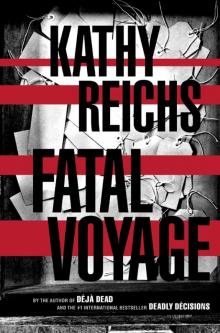 Fatal Voyage
Fatal Voyage 206 Bones
206 Bones Bones to Ashes
Bones to Ashes Terminal
Terminal Monday Mourning
Monday Mourning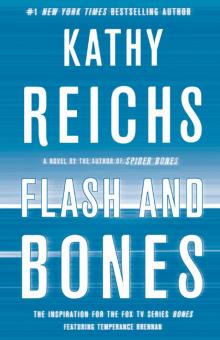 Flash and Bones
Flash and Bones Cross Bones
Cross Bones Devil Bones
Devil Bones Break No Bones
Break No Bones Swamp Bones
Swamp Bones Déjà Dead
Déjà Dead Shock
Shock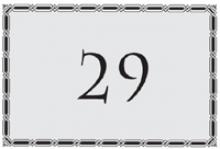 Spider Bones
Spider Bones Death Du Jour
Death Du Jour Grave Secrets
Grave Secrets Trace Evidence: A Virals Short Story Collection
Trace Evidence: A Virals Short Story Collection Bones on Ice
Bones on Ice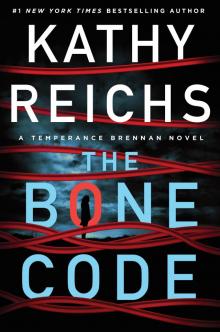 The Bone Code
The Bone Code Bones in Her Pocket
Bones in Her Pocket Seizure:
Seizure: Speaking in Bones
Speaking in Bones Deadly Decisions
Deadly Decisions Spike
Spike Bones Never Lie
Bones Never Lie Bones of the Lost
Bones of the Lost Virals 03.5 - Swipe
Virals 03.5 - Swipe Exposure
Exposure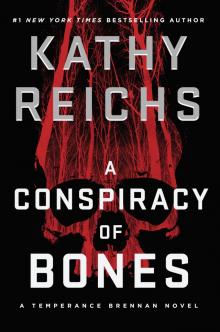 A Conspiracy of Bones
A Conspiracy of Bones Shift (tory brennan)
Shift (tory brennan) Bones of the Lost: A Temperance Brennan Novel tb-16
Bones of the Lost: A Temperance Brennan Novel tb-16 Virals tb-1
Virals tb-1 Bones Are Forever tb-15
Bones Are Forever tb-15 Code tb-3
Code tb-3 Seizure tb-2
Seizure tb-2 Deadly Descisions
Deadly Descisions Spider Bones: A Novel
Spider Bones: A Novel